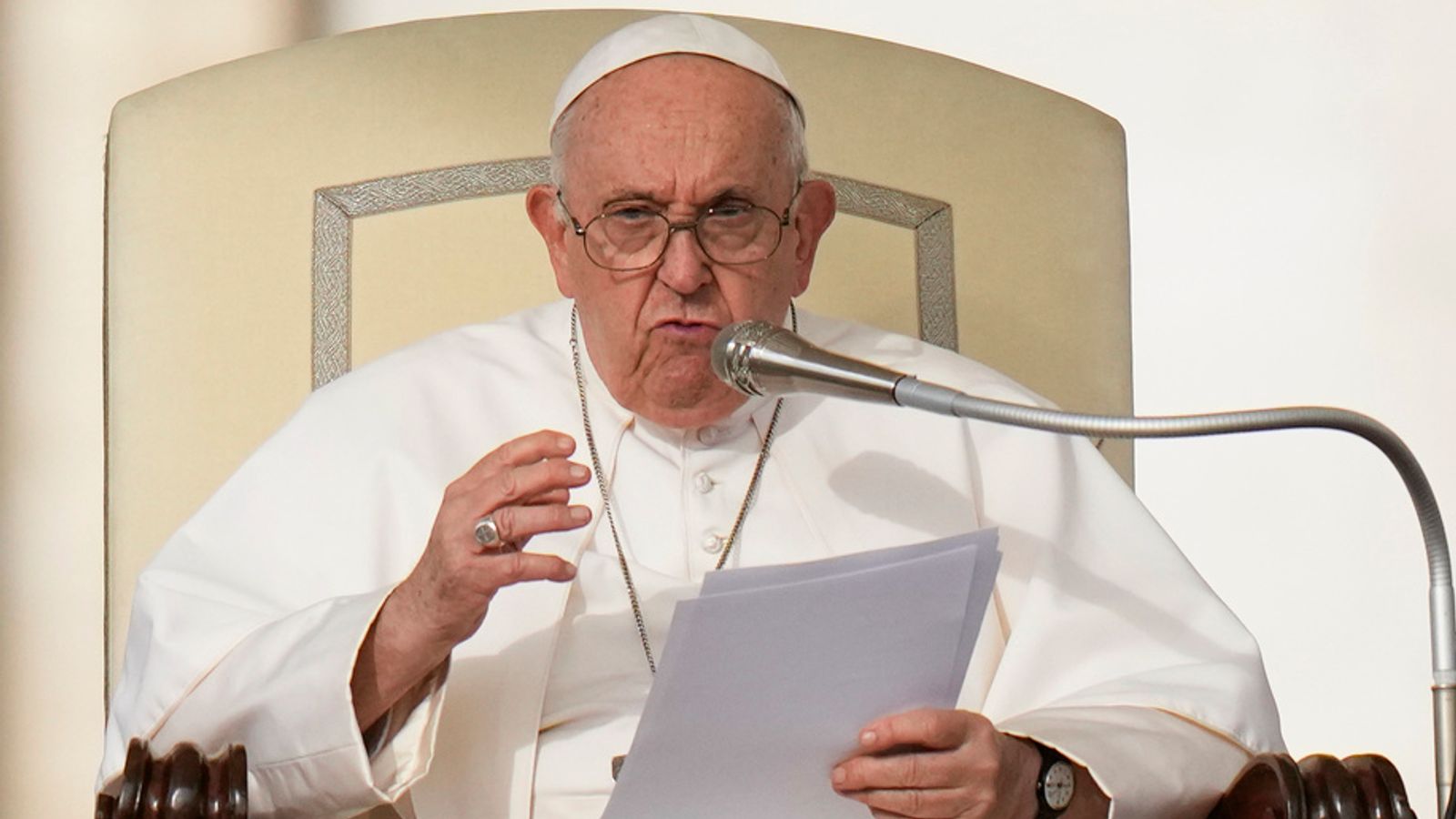A school has said it is not going to change its policy on transgender pupils despite new government guidance on how teachers should support children who question their gender identity.
Chesterfield High School in Liverpool – a mixed comprehensive with 1,600 pupils with about 30 of them identifying as transgender, non-binary or genderfluid – has said it has made up its own policy while waiting for government guidance.
“I’m not going to change what has worked for our school for the last 10 years,” Kevin Sexton, its executive headteacher, told Sky News.
The comments come ahead of government advice expected to be published on Tuesday.
The non-statutory draft government guidance advising schools and colleges in England has been promised since 2018 – but its publication has been delayed since the summer, with discrepancies on how stringent it should be.
At the centre of the guidance is whether children should be able to “socially transition” at school, which would allow them to live according to the gender they identify with rather than their natal sex.
This relates to their appearance, their clothing, and their chosen name or pronoun, plus whether teachers should be addressing the child by those names if they request it.
The guidance will not go as far as to say there should be a blanket ban but instead is expected to say schools should be under no general “duty” or “obligation” to allow children to socially transition, and that there will be a threshold to be met as to whether parents should be informed.
If a child is actively questioning their gender or expressing a desire to transition, the guidance is expected to say parents should be informed.
‘Genders as an issue has long gone in our school’
While the guidance will look at how and whether teachers should notify parents about their children’s gender identity, Chesterfield High School says its “contract” is with its children, and will only notify parents if it believes there is a safeguarding risk in not doing so.
“If I picked up the phone and had to tell a parent… your child has just asked this question today. Your child is feeling like this today. We’d never be off the phone. We would have a hotline,” said Penni Allen, Chesterfield’s director of wellbeing.
Pressed on how parents might feel about not being informed about their child exploring a different gender identity, Mr Sexton said: “Children come to our school and hopefully we have a positive experience.
“If we don’t create a positive experience, they won’t come to school, and they will be more unsafe, and more likely to make bad choices.”
Please use Chrome browser for a more accessible video player
Chesterfield has invested hundreds of thousands of pounds in gender-neutral toilets. It has gender-neutral uniforms and mixed-gender sports.
But the guidance is expected to have an emphasis on preserving single-sex spaces.
Read more from Sky News:
From three-bed house last Christmas to homelessness this year
COVID cases are rising and there’s a new strain
‘It was so important for teachers to use my correct pronoun’
Jack – not his real name – socially transitioned while at school.
He said teachers using his chosen pronoun meant he “could focus on being at school and learning and interacting socially”, as opposed to feeling like he was in an environment where he felt “uncomfortable” and where being trans was seen as an “issue”.
Jack had a bad experience at the first school he went to, so later moved.
He had asked for a support group and better awareness about the discrimination LGBT+ people faced but says those requests were denied and was told they were “inappropriate”.
His former school said it had an “active equality and diversity group” in place and it “regularly” offered support to students who need it.
Be the first to get Breaking News
Install the Sky News app for free
After moving on to a different school, Jack said he felt much more comfortable – and had a positive experience in socially transitioning.
“I felt I could connect more with people and be more open about myself,” he said.
“I think school is just a really great space in which to experiment and to have that freedom to try things out.”
‘There should be no social transitioning in schools’
But Nick Fletcher – a Conservative MP on the Education Select Committee – disagrees.
“There’s an awful lot of areas in life which are grey,” he said. “But I think the safeguarding of our children is not – it’s black and white.
“There should be no social transitioning in schools, there should be no affirmation of children.”
Other Conservative MPs have also called for social transitioning for children to be banned altogether.
The former prime minister Liz Truss brought forward a private members’ bill in parliament to prevent children from attempting to change their gender.
But the former attorney general Victoria Prentis ruled that banning children from socially transitioning would be in breach of the Equalities Act.
The reality is that transgender children are a small part of the pupil population, yet they make up a big part of the political conversation.
What’s not clear is whether new guidance – which for now will only be a draft, before being put out to consultation – will help teachers, or whether they will continue to need to make their own judgement as to how to navigate children questioning or wanting to change their gender.











